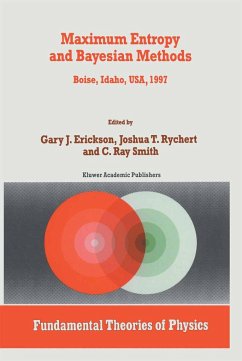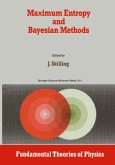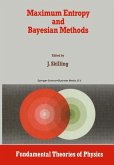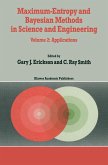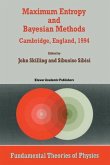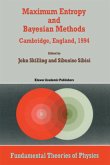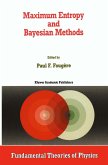This volume has its origin in the Seventeenth International Workshop on Maximum Entropy and Bayesian Methods, MAXENT 97. The workshop was held at Boise State University in Boise, Idaho, on August 4 -8, 1997. As in the past, the purpose of the workshop was to bring together researchers in different fields to present papers on applications of Bayesian methods (these include maximum entropy) in science, engineering, medicine, economics, and many other disciplines. Thanks to significant theoretical advances and the personal computer, much progress has been made since our first Workshop in 1981. As indicated by several papers in these proceedings, the subject has matured to a stage in which computational algorithms are the objects of interest, the thrust being on feasibility, efficiency and innovation. Though applications are proliferating at a staggering rate, some in areas that hardly existed a decade ago, it is pleasing that due attention is still being paid to foundations of the subject. The following list of descriptors, applicable to papers in this volume, gives a sense of its contents: deconvolution, inverse problems, instrument (point-spread) function, model comparison, multi sensor data fusion, image processing, tomography, reconstruction, deformable models, pattern recognition, classification and group analysis, segmentation/edge detection, brain shape, marginalization, algorithms, complexity, Ockham's razor as an inference tool, foundations of probability theory, symmetry, history of probability theory and computability. MAXENT 97 and these proceedings could not have been brought to final form without the support and help of a number of people.

